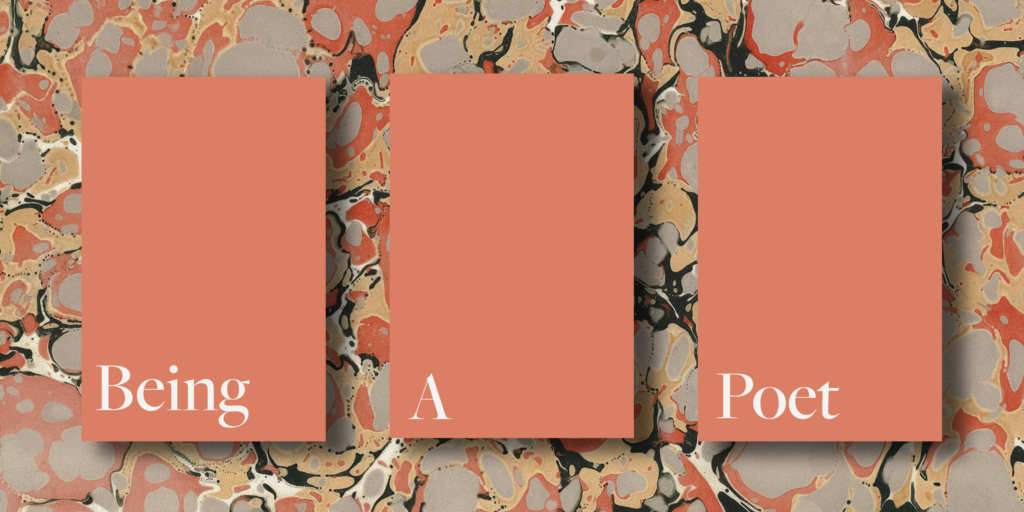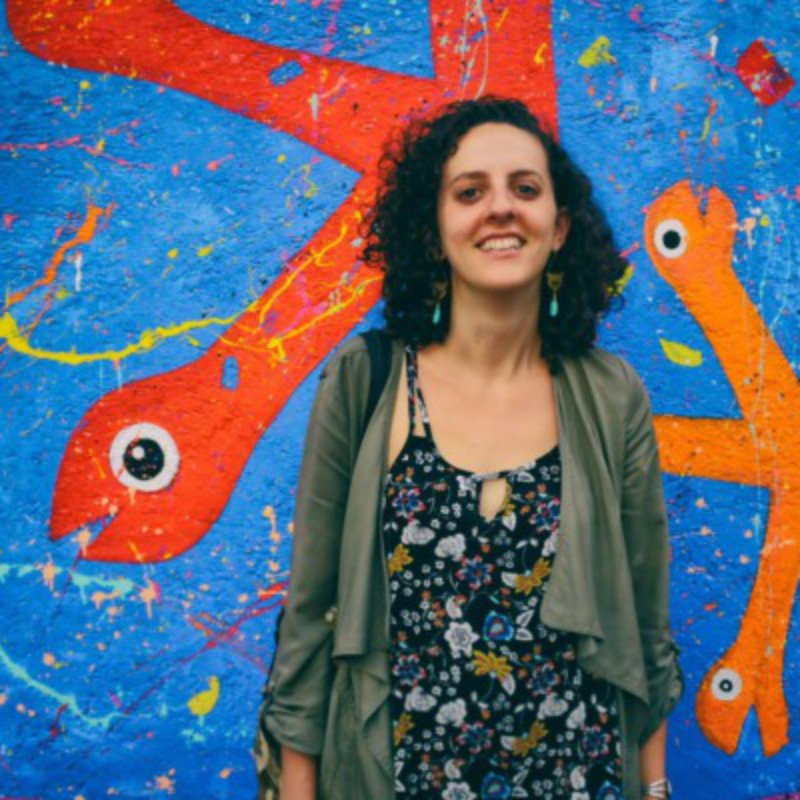In this series, we interview our tutors about poetry and its place in their world. These interviews will cover creative writing tips, excelling in a poetry workshop, building a literary career, and finding your poetic voice. Here’s Rebecca Levi on poetry as a revolution of language. Rebecca is running The Poetics of Latin American Resistance: “Yo Vengo a Ofrecer Mi Poema / I Come to Offer My Poem”, starting this May 2025.

Let’s start with Desert Island Poems. Can you name seven poems by Latin American poets that you particularly treasure?
I have a feeling that most of these are untranslated, so I’ll give you my translation of the first one.
1 – ‘Tristeza’, Cecilia Casanova (Chile)
Tristeza
Esta mañana se concentraron los pájaros
en mi ventana.
Cantaban todos a la vez
sin ponerse de acuerdo.
Los oía apenas,
cubierta con las sábanas
y esa tristeza que me quedó de anoche.
Indefensa, en posición de nacer,
añoro esa amplitud
que me hincha a veces
como a las palomas.
Sadness
This morning the birds assembled
at my window.
They all sang together
without planning to.
I only just heard them,
covered by the sheets
and that sadness left over from last night
Exposed, curled up like a newborn,
I yearn for that spaciousness
that swells me sometimes
as it does pigeons.
2 – ‘Cuando bajo del mar hacia la tierra…’, Stella Díaz Varín (Chile)
3 – Bracea, Malú Urriola (Chile)
4 – ‘Nocturno de la Estatua’, Xavier Villaurrutia
(México)
5 – ‘Dama de blanco’, Blanca Varela (Perú)
6 – ‘Cenizas’, Alejandra Pizarnik (Argentina)
7 – ‘Seyawin’, Seykingʉmʉ Osorio (Pueblo Arhuaco, Colombia)
Throughout history, revolutions – political, social, cultural – have inspired poets. What makes poetry an effective response?
Poems can be 100% true and completely distorted at the same time. We are used to poetry being autobiographical, which lends an expectation of truth telling (I wonder if this poem is about the poet’s mother…), the blank page inviting the poet to tell it like it is, straight away. At the same time, poetry’s ability to zoom way out (time travel, country hopping) or way in (a single moment that changed everything) distorts the narrative in a wonderful way. Along with those dizzying shifts in perspective, poetry has permission to be obtuse, mysterious. For all these (and many more) reasons, poetry is a perfect place to hide the truth in plain sight. In other words, ideal for resisting fascism and authoritarianism.
What role does poetic experimentation play in resistance?
Systems of power, especially authoritarian ones, seek to crush our critical thinking and our imagination – they want to do away with our ideas and our dreams. If we can think critically, we might be able to see the lies beneath the propaganda; if we can dream, we might be able to imagine a different reality, and make it come true. Poetry can be both the fertile soil of the mind and the deepest expression of the soul – we can unload our strangest thoughts and pick apart the most bizarre ideas or feelings we’ve ever had. We can show that the emperor has no clothes, and even when we don’t write about politics, we are cultivating a rich, private space, free of YouTube ads and clickbait journalism. We are resisting the culture of fifteen-second videos, because poems may be brief, but they are certainly not fast. We can go deep in three lines, or spend pages exploring the space between a lover’s words, or a mother’s actions. Resistance is not just about speaking out against specific leaders or parties, but also examining the root societal beliefs and practices that seek to make us less than who we are.
Who are some poets – past or present – who have used language as a site of rebellion? What can we learn from them?
I think it’s important to read poets from one’s own country who challenge the hegemonic structures. In the US, this means black poets, indigenous poets, queer poets, immigrant poets… the list goes on. I’m not necessarily looking for their perspective on politics alone, but how their point of view on any subject may upset, productively, my own. There are the most famous voices of resistance, like Langston Hughes, Maya Angelou, and Audre Lorde. And there are some of my favorite contemporaries, like Nicole Sealey, Ocean Vuong, and Megan Fernandes. But in general, you can ask of any poem: “Is the poet challenging something? Or are they upholding it?” For example, in my opinion, Elizabeth Bishop challenges. Pablo Neruda does not.
What advice would you give to poets who want to use their work to challenge, disrupt, and revolutionise?
I think we have to be willing to ask ourselves, “what do I need to transform in myself?” The revolution starts within. A poem that describes the horrors of the genocide in Gaza* may be powerful, but will probably be more powerful if the poet is involving themselves, recognizing the role they play in a world that allows such atrocities to happen. This doesn’t mean overstating your own guilt – that would be tiresome – but asking yourself: “Do I care about some bodies more than others? Do I think that some violence is justified? Or even, have I loved someone who caused harm? Have I believed in the good in someone who does bad things? Or have I ignored the bad in someone who is a victim? Or, I am a mother shopping online for baby intercoms while other mothers…” The list goes on. How do you fit into it all? Maybe in the final draft the “I” will all but disappear, but the tone will be more real for having situated yourself in the world that desperately needs changing.
Rebecca Levi is running The Poetics of Latin American Resistance: “Yo Vengo a Ofrecer Mi Poema / I Come to Offer My Poem”, starting this month May 2025. Find out more and sign up here.

Rebecca Levi is a poet, translator, musician, and educator based in the Rivers Region of Chile. Originally from New York City, she studied comparative literature at Yale University and poetry with Robert Pinsky at Boston University. Her poems and translations have been published in journals such as Columbia Journal and No Tokens Magazine, by Princeton University Press and Broadstone Books, and in The Times Literary Supplement as a runner-up of the Mick Imlah Poetry Prize. Rebecca composes and performs folk, rock, and experimental music, often in collaboration with dance and performance. She has been an educator for seventeen years, with a focus in youth orchestra, early childhood music, and creative writing, and her teaching has taken her around the world, from Peru to Colombia to India. Rebecca teaches in English, Spanish, and Italian.
Add your Reply
You must be logged in to post a comment.